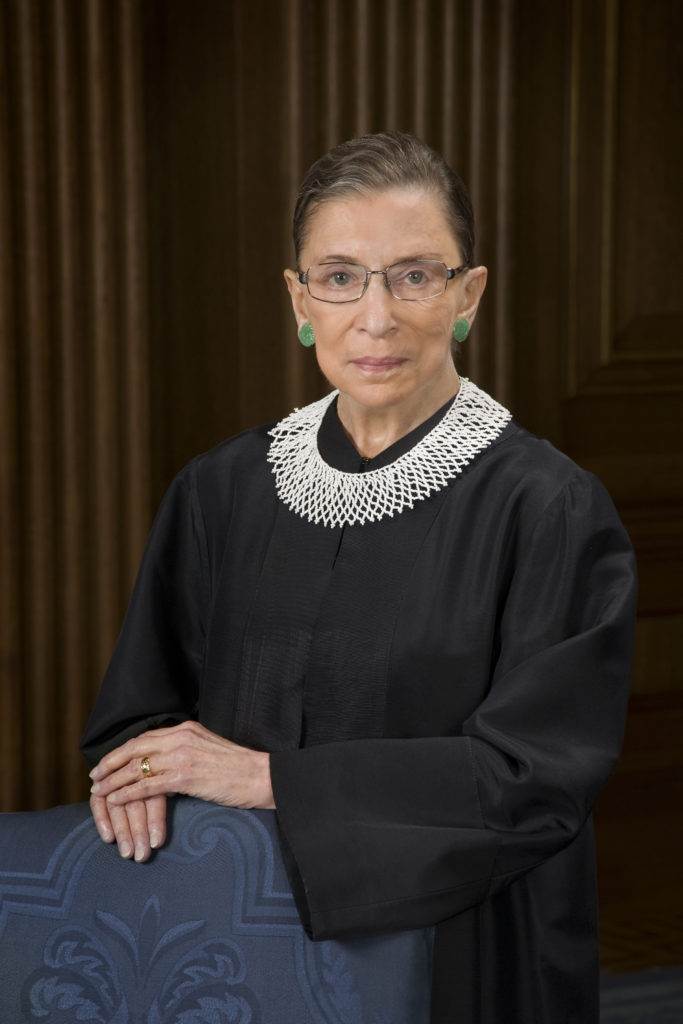Justice Ruth Bader Ginsburg
The conservative commentariat flew into a rage when Supreme Court Justice Ruth Bader Ginsburg announced she would not attend President Trump’s first annual State of the Union address.
Perhaps conservatives should be more sympathetic to Ginsburg’s decision — perhaps the president should follow her lead and refuse to show up to the House of Representatives next year.
Article III of the U.S. Constitution requires the President to “give to Congress information of the State of the Union and recommend to their Consideration such measures as he shall judge necessary and expedient.” But, this message to Congress was not always delivered in person.
In 1801, Thomas Jefferson sent his first annual address to Congress via messenger in writing. He explained that “In doing this, I have had principal regard to the convenience of the legislature, to the economy of their time, to their relief from the embarrassment of immediate answers on subjects not yet fully before them, and to the benefits thence resulting to the public affairs.”
For Jefferson and other Founders, an annual speech before Congress made the President seem more akin to the opulent monarchs of Europe than the limited role they envisioned for him. Congress, not the presidency, was the closest branch of government to the people because it represented them.
Around the turn of the 20th century, though, that view started to change. Progressives of the day saw the presidency as the country’s most representative office in the government because they believed presidential elections were the most direct form of democratic action.
In the hands of progressives like Woodrow Wilson, the State of the Union address was turned into a tool for the president to set a legislative agenda for the following year. Congress was no longer the branch of government carrying out the people’s will — instead, progressives looked to the president, elevated above the people’s house and giving orders to the people’s representatives.
From the attention-seeking politicians crowding the aisles to get a few seconds on televsion to the platitudinous pandering that characterizes the speech almost every year, the annual State of the Union address has come to embody everything that is wrong with contemporary American politics — everything Thomas Jefferson wanted to avoid in 1801.
The late Supreme Court Justice Antonin Scalia said it best in 2013 when he explained why he refused to attend: “[The State of the Union] has turned into a childish spectacle, and I don’t think that I want to be there to lend dignity to it.”
In his inaugural address, President Trump said that his administration would be dedicated to “transferring power from Washington, D.C., and giving it back to you, the people.” Returning the State of the Union to the form it took when Jefferson and Lincoln ran the executive would be an enormous symbolic gesture toward accomplishing just that.
Besides, what could be more classically Trumpian? A large part of the spectacularness Scalia complained about comes from the breathless attention the media devotes to the speech every year. Endless televised panels analyzing the speech, countless over-hyped “responses” to the speech by C-List politicians, not to mention the thoughtless live-tweeting during the speech — it’s enough to drive the informed citizen mad.
If Trump chose to deliver his next State of the Union in writing, the mainstream media would go ballistic. He would ruin hours of their canned programming and force them to focus on the substance of his message rather than the style. Not to mention, disrupting a custom so entrenched as the State of the Union address would dominate headlines for weeks.
Our republic deserves better than the modern cult of the presidency. We don’t need climactic political theater to keep the economy running smoothly or the military protecting us from danger. The president should do what he can to bring the state of politics to something more like the Founders’ original intent — and he can start by being conspicuously absent at next year’s State of the Union address.
Michael Lucchese is a senior majoring in American studies.


